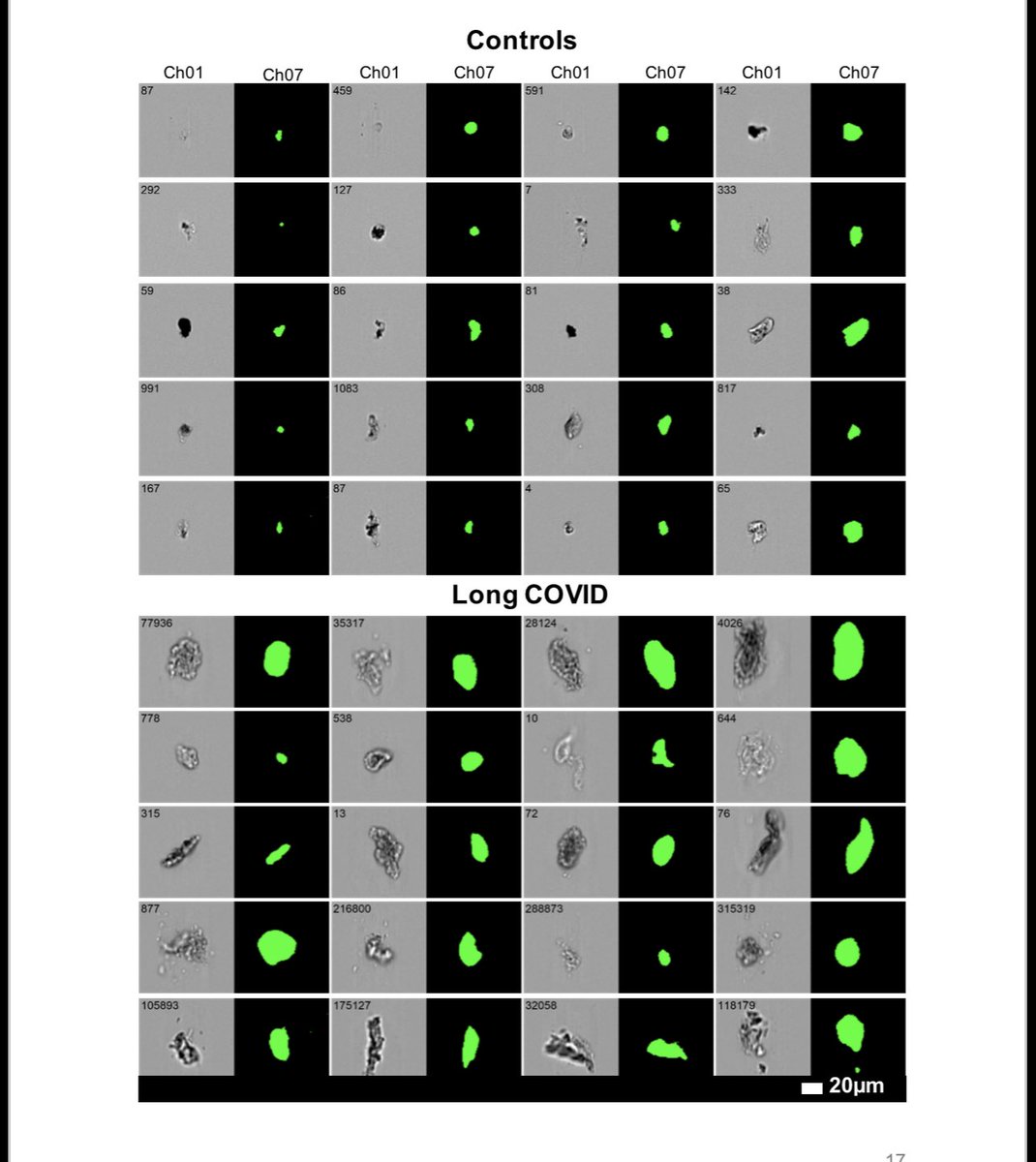Our preprint about treatment of 91 #LongCovid patients with triple anticoagulant therapy is out! By Dr Jaco Laubscher, @resiapretorius @dbkell @JanPretorius98 & myself...
#ResearchLongCovid
#TreatLongCovid
#MECFS
#TeamClots
#MedTwitter
#MedEd 1/n
#ResearchLongCovid
#TreatLongCovid
#MECFS
#TeamClots
#MedTwitter
#MedEd 1/n
https://twitter.com/RS_COVID19/status/1638217497424850945
This graph represents the number of patients with each individual symptom, and their response to treatment
4/n
4/n

At the end of treatment, patients were asked to rate their response to treatment using the Patient Global Impression of Change (PGIC). This is an instrument to retrospectively measure response to a therapy
5/n
5/n

Here is the distribution of PGIC scores. 80% of patients had a score of 5 (moderately better) to 7 (a great deal better).
Median PGIC score was 6!
The results are broken down by whether patients had 'short' (<6 months) or 'long' (>6months) duration of disease
6/n
Median PGIC score was 6!
The results are broken down by whether patients had 'short' (<6 months) or 'long' (>6months) duration of disease
6/n

Fluorescence micrographs of platelet-poor plasma (PPP) from 5 patients stained with Thioflavin T showing fibrin amyloid microclots before (left) and after (right) the course of treatment. These patients had a corresponding good clinical response too
7/n
7/n

Fluorescence micrographs of platelets from 5 patients before (left) and after (right) treatment. You can see the decrease in platelet hyperactivation
8/n
8/n

Adverse events:
75 reported non-serious bruising
5 experienced minor nosebleeds
3 reported bleeding after a finger cut, out of whom one required medical intervention
1 participant had a GI bleed requiring transfusion
2 females reported increased menstrual bleeding
10/n
75 reported non-serious bruising
5 experienced minor nosebleeds
3 reported bleeding after a finger cut, out of whom one required medical intervention
1 participant had a GI bleed requiring transfusion
2 females reported increased menstrual bleeding
10/n
The bleeding incidence compares favourably to that seen in trials of triple anticoagulation for atrial fibrillation (AF) (2.5-3.5%); probably because the aim of treatment in #LongCovid is to normalise the hypercoagulability, whereas in AF the patient is made hypocoagulable
11/n
11/n
Caveats:
-all patients had proven microclots & hyperactivated platelets prior to treatment
-patients were treated & closely monitored by an expert clinician
-there was no control group- this was a real-life study done in a busy clinical environment
12/n
-all patients had proven microclots & hyperactivated platelets prior to treatment
-patients were treated & closely monitored by an expert clinician
-there was no control group- this was a real-life study done in a busy clinical environment
12/n
-the numbers are relatively small
-these results need to be replicated in randomised, double-blind, placebo-controlled trials with some urgency. These studies need to have clear objective physiological & laboratory outcomes
13/n
-these results need to be replicated in randomised, double-blind, placebo-controlled trials with some urgency. These studies need to have clear objective physiological & laboratory outcomes
13/n
sorry forgot to mention Dr Chantelle Venter as well
• • •
Missing some Tweet in this thread? You can try to
force a refresh








